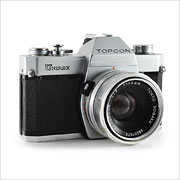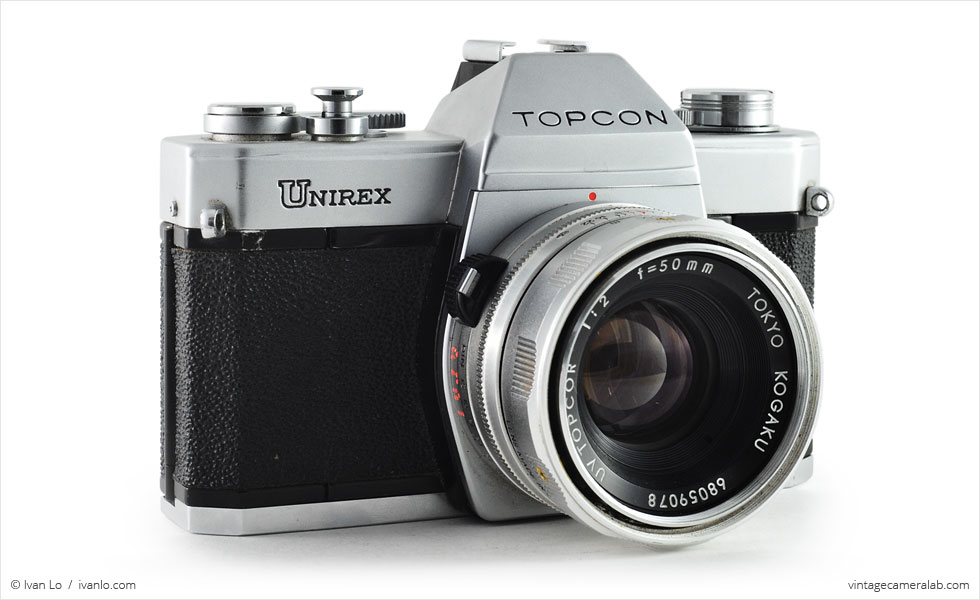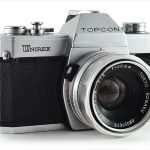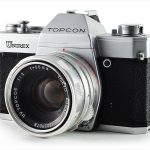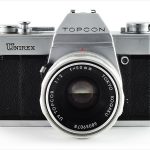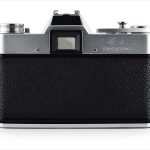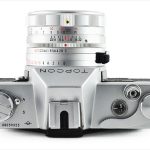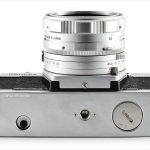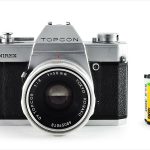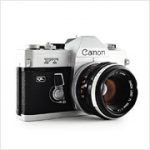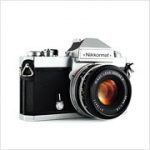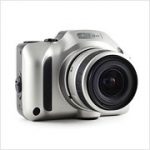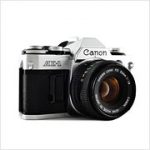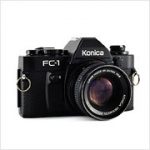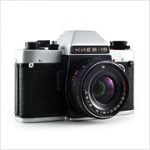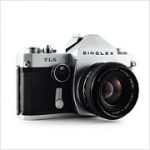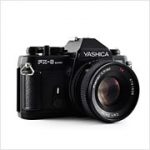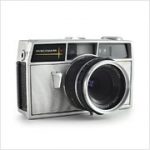Topcon Unirex Specifications
| Manufacturer: | Tokyo Kogaku K. K. |
| Origin: | Japan |
| Made in: | Tokyo, Japan |
| Introduced: | 1969 |
| Type: | Single Lens Reflex |
| Lens Mount: | UV Topcor Mount |
| Format: | 135 Film |
| Dimensions: | 14 x 9.4 x 4.3 cm (body only) |
| 14 x 9.4 x 8.3 cm (with lens) |
Topcon Unirex Overview
The Topcon Unirex is a single lens reflex camera introduced by Tokyo Kogaku in 1969. While not one of the company’s higher end models, the Unirex still carries the high build quality associated with Topcon SLRs.
Unlike many SLRs of its era, the Unirex’s top plate is relatively sparse with only (from left to right) a film rewind knob with a switch at its base that changes the metering mode between A (average) and S (spot), a cold shoe, frame counter, threaded shutter button, and frame advance lever. The bottom plate is similarly bare with only a film rewind release button, tripod socket, compartment for the battery which powers the cadium sulfide light meter, and film door latch.
At roughly five o’clock on the lens mount is a switch between V (ten second self-timer), X (flash synchronization mode used in conjunction with the flash socket at two o’clock), and M (the default setting). Shutter speeds can be set by rotating the ring at the base of the lens mount by moving the black nub attached to it; to change the film speed, the small metal catch on the nub must be pulled outward. The next ring up controls the aperture with an automatic setting that can only be used if one of the red shutter speeds are chosen. The aperture selection ring is also home to a small metal tab which, when depressed, releases the lens from the mount with a counter-clockwise twist. The forwardmost ring is used to focus the lens.
I bought this camera for $20 at a local thrift store. The price was a bit on the high side but once I saw the Topcon name, I knew that it would be worth it. My Unirex seems to be in good working order and very good cosmetic condition with the only real flaws being a few blemishes here and there along with the former owner’s name and social security number scratched into the back.
Find your very own Topcon Unirex on eBay.
McKeown, James M. and Joan C. McKeown’s Price Guide to Antique and Classic Cameras, 2001-2002. (Grantsburg, WI, USA: Centennial Photo Service, 2001), p 638.
